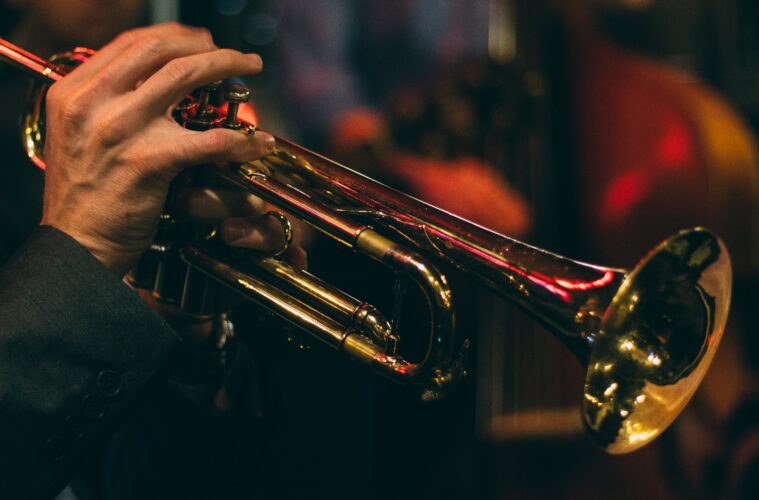Jazz, with its intricate rhythms and expressive melodies, holds a unique place in the world of music. Its emphasis on improvisation allows musicians to freely experiment with sounds, developing a personal style.
This article aims to guide beginners venturing into the vibrant realm of jazz. We will dive into the fascinating dynamics of jazz rhythms, exploring the concept of rhythmic freedom.
Understanding Rhythmic Freedom in Jazz
Rhythmic freedom is an essential characteristic of jazz. It refers to a musician’s ability to play fluid or flexible rhythms within a steady beat or pulse.
This freedom allows the musician to explore unique and varied possibilities of expression. As a beginner, developing an intuitive understanding of this concept is essential.
A Few Tips to Grasp Rhythmic Freedom:
- Practice different time signatures: Jazz is not confined to the common 4/4 time signature. 3/4, 6/8, and 5/4 are also frequently used.
- Learn Swing: This is a distinctive element in jazz that gives the rhythm a propelling, rolling feel. The swing rhythm emphasises the off-beats in a measure.
- Listen and Experiment: Listen to diverse jazz pieces to absorb different rhythmic styles. Once you’re familiar with various styles, experiment with rhythms using improvisation.
Utilising Online Resources
A wealth of resources is available online for beginners learning jazz, ranging from YouTube tutorials to specialised platforms. A fantastic learning resource is FreeJazzLessons.com, a website dedicated to providing comprehensive jazz lessons.
The immense variety of lessons offered, along with musical sheets and interactive demonstrations, make it a splendid tool for grasping rhythmic freedom in jazz.
Why Choose Online Resources?
Night or day, wherever you are, online lessons are accessible:
- Learn at your own pace: Online lessons allow you to learn at your own speed, repeat sections that are difficult, and pause when necessary.
- Cost-Effective: Most resources, such as FreeJazzLessons.com, offer numerous free lessons, making learning jazz more affordable.
- Community Interaction: Many online forums encourage interaction with fellow learners, providing diversity of thought and new learning opportunities.
Developing Your Unique Jazz Rhythm
Understanding and playing rhythms used in jazz is essential, but developing your distinct jazz rhythm leads to true rhythmic freedom. Jazz is all about self-expression; hence, letting your personality shine through your rhythm is vital.
Steps to Develop Your Unique Jazz Rhythm:
- Master Basic Rhythms: Begin with learning and thoroughly practicing basic jazz rhythms.
- Play Along with Tracks: This will help you understand how different rhythms feel.
- Try Reinterpretation: Play a known melody but experiment with its rhythm.
- Improvisation: Improvise within the rhythmic structure of the piece you’re learning.
The Three Ps of Jazz – Practice, Patience, Perseverance
These three Ps are integral to mastering rhythmic freedom. Practicing regularly is essential, though, remember that learning rhythms are a gradual process. Be patient with your progress and maintain perseverance despite setbacks.
The Benefits of Learning Jazz Music
Learning to play jazz music has many benefits, and these advantages make the genre a worthwhile musical pursuit for aspiring musicians or even those simply looking for a rewarding hobby.
Expanding the Mental Landscape
Jazz, especially because of its improvisational nature, encourages the musicians to think on their feet. This active engagement improves:
- Concentration: Playing jazz requires intense focus – attention to rhythm, harmony, and melody.
- Memory: As you learn to play more complex jazz tunes, you’re effectively giving your memory a healthy workout.
- Creativity: Improvisation, a cornerstone of jazz, encourages real-time creation, helping your creative talents to flourish.
Emotional Expression and Communication
Jazz music serves as a vigorous, eloquent form of self-expression and communication. It allows you to:
- Express emotions: Jazz is a conduit for communicating complex emotions that might not be as easily articulated through words.
- Tell stories: Much like blues, jazz is a narrative art form. Every tune or improvisation can tell a unique and personal story.
- Connect with others: Jazz, coming from a rich communal tradition, thrives on interaction. This enhances your ability to connect with fellow musicians as well as listeners.
Boosts Confidence and Personal Development
Learning, playing, and eventually mastering jazz music can lead to significant personal growth.
- Builds confidence: Learning to express yourself via an instrument builds confidence, which can transcend into other aspects of life.
- Develops discipline and perseverance: Mastering a jazz standard or achieving the fluidity of improvisation requires practice. This develops discipline and perseverance – invaluable life skills.
- Promotes cultural understanding: Jazz has deep roots in Black culture and history. Learning jazz provides a window into this rich cultural tapestry, promoting cultural appreciation and understanding.
Why Consider Learning Jazz Music?
Considering the aforementioned benefits, delving into the world of jazz music can be an enriching journey. Additionally:
- Versatility: The skills you acquire while learning jazz, such as a profound understanding of harmony and rhythm or the ability to improvise, can enhance your performance in many other music genres.
- Broadens Musical Understanding: Jazz has complex harmonies, rhythms, and melodies. Hence, mastering these elements drastically broadens your musical understanding.
- Enhances Listening Skills: Jazz promotes active listening, a skill useful not just in a musical context but in all aspects of life.
- Embodies Freedom: In the heart of jazz is the concept of freedom – freedom to create, improvise, and transcend conventional musical rules.
Final Words
In conclusion, learning jazz is like a journey towards rhythmic freedom—an exciting exploration filled with challenges and discoveries along the way. Making the most of resources and bringing your unique touch to jazz rhythms will lend a whole new dimension to your musical experience.
As you tap into the jazz world, remember to enjoy the music, for the rhythm of jazz is, indeed, the rhythm of life.





